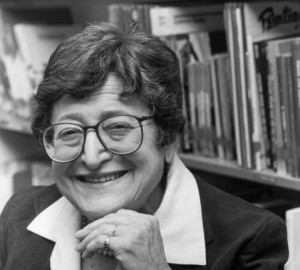Chall’s Six Developmental Stages of Reading
1. Pre-reading Birth to Kindergarten
At this stage, young children can listen to stories read to them. Many three year olds pretend to read by mimicking adults flipping through books. By ages four and five, children can point to words and pictures when asked. When children enter Kindergarten many can recite the alphabet, recognize written letters and write their own names.
2. Reading and Decoding Grades 1 and 2
During these early years of school, students gain phonemic awareness—or learn to associate letters with their corresponding sounds. At this level, readers often focus on individual words.
3. Fluency Grades 2 and 3
Children become fluent at recognizing words with less effort. Through repeated readings of familiar stories, children begin to associate printed words with stories they know and understand.
4. Reading for New Learning Grades 4-8
By developing the skills associated with fluency, students can now move on to unfamiliar texts and focus on meaning. In this way, reading develops into a means of gaining new information. Fourth graders typically begin to use these skills across subjects in science, math, history and geography.
5. Develop Multiple Viewpoints High School
These readers have developed to the point where they can appreciate works arguing different points of view. They can also decide how quickly or slowly to read, whether to skim or closely study a text. Ideally, students at this level are reading both for learning and enjoyment.
6. Construction and Reconstruction College and adulthood
Mature readers can read multiple texts and assimilate information to form their own understanding. Perhaps most important of all: readers at this level know what to read versus what not to read as a means of efficiently meeting the goals of their reading.
So, where did these benchmarks come from?
 Renowned reading expert and Harvard psychologist, Jeanne Chall. Born in Poland, Chall made her way to New York City with her family at the age of 7. As a child, Chall spoke only Yiddish. But once in school, she learned English (despite a lack of bilingual instruction) and ultimately helped her parents learn the language so they could pass their citizenship exams.
Renowned reading expert and Harvard psychologist, Jeanne Chall. Born in Poland, Chall made her way to New York City with her family at the age of 7. As a child, Chall spoke only Yiddish. But once in school, she learned English (despite a lack of bilingual instruction) and ultimately helped her parents learn the language so they could pass their citizenship exams.
Chall went on to become one of the nation’s foremost reading researchers. Among her most important works was the 1965 book, “Learning to Read: the Great Debate.” (Limitedly available from Amazon here: http://www.amazon.com/Learning-Read-The-Great-Debate/dp/0155030809)
Her most influential work grew out of the furor that arose from the 1955 book, “Why Johnny Can’t Read,” by Rudolph Flesch. Initially, Chall set out to disprove Flesch’s argument for teaching reading through explicit phonics instruction, rather than the ‘whole language’ approach, which solely uses context to teach children.
This is an ambitious age for knowing and doing.
—Jeanne Chall
To her surprise, much of the available research into reading at the time pointed in Flesch’s favor: students, particularly those from low-income backgrounds, benefited from explicit phonics instruction as a first step on the path to becoming a reader.
Chall—who founded and led the Harvard Reading Laboratory from 1967 until her retirement in 1991—became one of the leading advocates of phonics. And, she often took heated criticism from whole language advocates in the 1970s and 80s.
But by the 1990s, when states like California began re-introducing explicit phonics instruction in an attempt to correct dismal statewide reading scores, Chall’s book was reissued in paperback and went on to influence a whole new generation of teachers and literacy researchers.
(For more on the history of the debate between phonics and whole language reading instruction, check out this November 1997 article from The Atlantic: http://www.theatlantic.com/magazine/archive/1997/11/the-reading-wars/376990/)
It’s important to note Chall herself maintained that the argument between phonics and whole language was not simply binary. While a strong advocate for explicit and direct phonics instruction as based on years of scientific research, Chall also believed that children needed to be immersed in a reading-rich environment. Children, she stressed, benefit from an early exposure to texts that challenge them and encourage deeper thought.
Throughout her career, Jeanne Chall was keenly aware of the direct impact the quality of education had both on children and the world they would grow up to inherit. The ‘reading wars,’ were not merely an arcane debate among academics. In 1965 she wrote, “This is an ambitious age for knowing and doing.” She went on to predict, “The first graders now learning to read will be exploring the moon and Mars. They will be called upon to search for a cure for cancer and for ways of alleviating mental illness. And they will be trying to live with one another and the rest of the world without blowing themselves up.”
To learn more about Jeanne Chall’s life and work, check out: http://www.aft.org/periodical/american-educator/spring-2001/tribute-jeanne-chall
